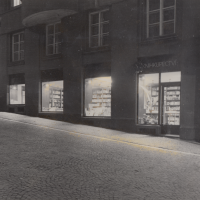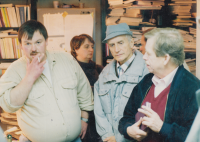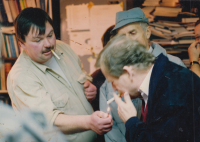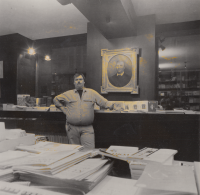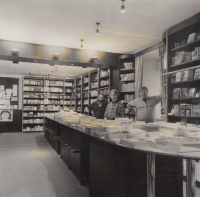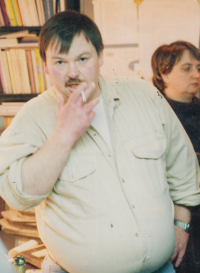I didn’t want a bookstore as a source of money. I wanted to sell books that weren’t available anywhere else

Stáhnout obrázek
Michal Ženíšek was born on July 9, 1954, in Hradec Králové into a clerical family. After the second renewal of Junák (Scout Movement) in 1968, he took the oath in the local organization in Hradec Králové. In the 1970s, he met František Otta, who emigrated to the USA in 1973. Michal Ženíšek planned to travel to the West to meet him, but the State Security knew about this plan and arrested him in July 1975. He spent two days in detention on suspicion of preparing to leave the republic illegally, but the charges were dropped. Michal Ženíšek is listed in the Security Forces Archive as a candidate for secret cooperation/StB informer. However, he denies knowingly cooperating. In 1978, he started working at Dílna 24 Theatre (Theatre in a Tent), and later at Beseda Chamber Theatre in Hradec Králové as a stagehand, inspector, and occasional actor. From 1982, he worked as an inspector at State Opera Brno and also as a stagehand at Husa na provázku Theatre. In the late 1980s, he worked as a production assistant and assistant director for Krátký film Praha. He participated in filming the series Slovácko sa nesúdí. In 1989 he signed A Few Sentences manifesto. In November 1990, he founded the first private bookshop in Czechoslovakia thanks to his contact with Petr Pastrňák, who ran a bookshop for exiled compatriots in Vienna. The shop was located on Květinářská Street in Brno and since 2004 in Alfa arcade. The bookshop closed in 2023 after 32 years.
